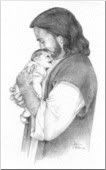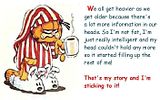Post by charliegirl on Jun 10, 2008 6:57:56 GMT -5
I copied this from a newsletter from Wrightslaw.
News: Resarch Tool Can Detect Autism at 9 Months of Age
There is an urgent need for a quick, reliable, objective screening tool to diagnose autism earlier. At present, the earliest diagnostic test for autism is reliable around age two. Most children are not diagnosed until age 3 or 4. With an earlier diagnosis, children can get intensive treatment early and a better prognosis for the future.
The ability to detect autism in children as young as 9 months is on the horizon, according to researchers at McMaster University.
The Early Autism Study, led by Mel Rutherford, associate professor of psychology, is using eye tracker technology that measures eye direction while babies look at faces, eyes, and bouncing balls on a computer screen. Rutherford presented her peer-reviewed research at the 7th Annual International Meeting for Autism Research in London. (www.autism-insar.org).
"With this tool, we can distinguish between a group of siblings with autism from a group with no autism - at 9 to 12 months" says Rutherford. "I can do this in 10 minutes, and it is objective ... it's not influenced by a clinician's report or by intuition."
Join the Early Autism Study
The Early Autism Study is requesting volunteers.
Early Autism Study Logo"Do you have a young baby, early in his or her first year of life? We are especially interested in babies who have autism in the family.
Does your baby have a sibling with autism? Come visit our lab, or we can visit you!
Join the Early Autism Study!"
For more information about the Early Autism Study, please go to www.earlyautismstudy.com/
*********and another one for ages 1 to 6*************
The Pediatric and Developmental Neuropsychiatry Branch of the National Institutes of Health is currently conducting a number of longitudinal studies for children 1 to 6 years of age.
Five groups are part of this study:
* Children with aggressive onset of autism
* Children with autism and no history of regression
* Children with Rett Disorder
* Developmentally delayed children
* Typically developing children
The study includes a comprehensive baseline assessment including cognitive and behavioral testing, neurological evaluation, laboratory assays, MRI, and EEG work ups by a team of specialists in pediatrics, child psychology, child psychiatry, pediatric neurology, and social work.
This study is located in Bethesda, MD. All NIH research evaluations are free of charge. Travel stipends are available. The identifier number of this study is NCT00298246.
For more details and to find out if your child is eligible call 301-435-7962 or 800-411-1212 (TTY 1-866-411-1010) or email: NIMH-ASD@mail.nih.gov.
www.clinicaltrials.gov/ct/show/NCT00298246?order=1
News: Resarch Tool Can Detect Autism at 9 Months of Age
There is an urgent need for a quick, reliable, objective screening tool to diagnose autism earlier. At present, the earliest diagnostic test for autism is reliable around age two. Most children are not diagnosed until age 3 or 4. With an earlier diagnosis, children can get intensive treatment early and a better prognosis for the future.
The ability to detect autism in children as young as 9 months is on the horizon, according to researchers at McMaster University.
The Early Autism Study, led by Mel Rutherford, associate professor of psychology, is using eye tracker technology that measures eye direction while babies look at faces, eyes, and bouncing balls on a computer screen. Rutherford presented her peer-reviewed research at the 7th Annual International Meeting for Autism Research in London. (www.autism-insar.org).
"With this tool, we can distinguish between a group of siblings with autism from a group with no autism - at 9 to 12 months" says Rutherford. "I can do this in 10 minutes, and it is objective ... it's not influenced by a clinician's report or by intuition."
Join the Early Autism Study
The Early Autism Study is requesting volunteers.
Early Autism Study Logo"Do you have a young baby, early in his or her first year of life? We are especially interested in babies who have autism in the family.
Does your baby have a sibling with autism? Come visit our lab, or we can visit you!
Join the Early Autism Study!"
For more information about the Early Autism Study, please go to www.earlyautismstudy.com/
*********and another one for ages 1 to 6*************
The Pediatric and Developmental Neuropsychiatry Branch of the National Institutes of Health is currently conducting a number of longitudinal studies for children 1 to 6 years of age.
Five groups are part of this study:
* Children with aggressive onset of autism
* Children with autism and no history of regression
* Children with Rett Disorder
* Developmentally delayed children
* Typically developing children
The study includes a comprehensive baseline assessment including cognitive and behavioral testing, neurological evaluation, laboratory assays, MRI, and EEG work ups by a team of specialists in pediatrics, child psychology, child psychiatry, pediatric neurology, and social work.
This study is located in Bethesda, MD. All NIH research evaluations are free of charge. Travel stipends are available. The identifier number of this study is NCT00298246.
For more details and to find out if your child is eligible call 301-435-7962 or 800-411-1212 (TTY 1-866-411-1010) or email: NIMH-ASD@mail.nih.gov.
www.clinicaltrials.gov/ct/show/NCT00298246?order=1

 I was about to conquer the world but then I got distracted by something shiny.
I was about to conquer the world but then I got distracted by something shiny.
